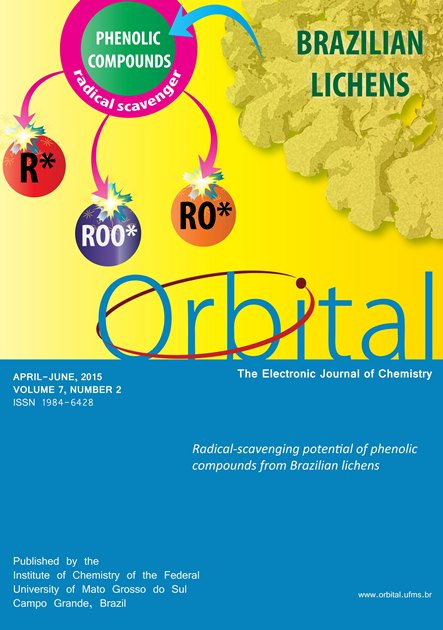Management of Mercury Waste in an Institution of São Paulo State Health Secretary, the Case of Butantan Institute
- mercury waste,
- management of hazardous waste,
- health,
- environment,
- thermometers
Copyright (c) 2015 Orbital: The Electronic Journal of Chemistry

This work is licensed under a Creative Commons Attribution-NonCommercial-NoDerivatives 4.0 International License.
Abstract
Metallic mercury is a species of interest for public health and the environment due to its high toxicity. The activities related to health assistance are among the important sources of anthropic emissions of mercury. There are alternatives to the use of mercury which are safe and economically viable for almost all its applications the health care. The São Paulo State Secretary of Health published Resolution SS-SP no. 239 on 12/07/2010, prohibiting the purchase, the use and the storage of mercury containing products in the institutions under its jurisdiction and determined that they should be disposed of following the accepted procedures. Instituto Butantan is a biomedical research center of the São Paulo State Secretary of Health and is responsible for the production of vaccines and serums for prophylactic and curative use. It also develops scientific research related to public health. In order to comply with the Resolution SS-SP no. 239, the Environment Management (EM) in collaboration with the Purchase Section and the Quality Assurance Department (QAD) replaced all mercury containing thermometers in the Institute. 183.0 kg of waste were sent to a company specialized in mercury phase-out process, through which the distilled mercury was extracted and the other materials were decontaminated.


